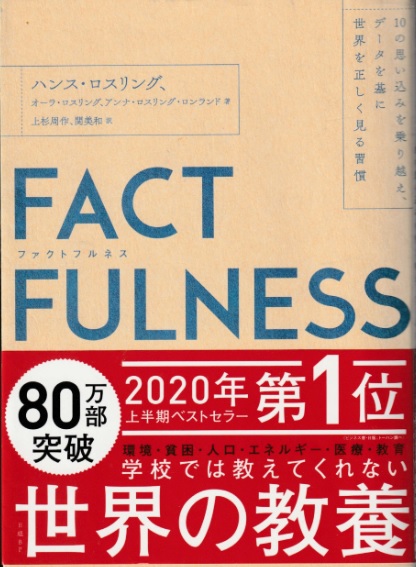管理人オススメコンテンツはこちら
「詐欺のテクニック|リスクを見極め、自らの未来を切り拓け!」
〜前回のつづき〜
●総括3
例えば
(1)リスクの確率と影響度を自分で測る事が出来る事
とはどういう事かと言うと
・国が破綻したら?
・外出時に隕石が当たったら?
・明日死んだら?
・明日がんになったら?
その確率と影響度を自分で考えるという事です。
確かに可能性としては有るけれども
その確率はどれぐらいなのか?
もしもそうなったら影響度はどれぐらい有るのか?
という事を自分で考えるという事です。
情報を鵜呑みにしないという事で

「ファクトフルネス」
ですよね。
思い込みじゃなくてデータを含めて自分で判断する。
データをそのまま鵜呑みにしてると
相手の情報をそのまま鵜呑みにしてると
保険会社が出してるような
嘘じゃないけど
『2人に1人ががんになって死ぬ』みたいな
そのままの情報を鵜呑みにしてしまうと
そういうデータを使ってうまくコントロールされてしまうという事です。
(2)コストパフォーマンスが高い対策を打てる事も大切
(1)の意見が正しくても
対策を間違うと結構大きく損しちゃうんですよ。
がんで2人に1人亡くなるというのは
確かに正しいかもしれない。
でもそれに対しての対策で保険というものが最適かどうかというのは
誰にもわからない事ですよね?
詐欺のテクニックとかでも同じで
嘘と本当を混ぜる。
(1)の情報やデータの所では正しい事を言っておいて
(2)の対策の部分で嘘をついたり
余計な商品を売ったりする訳ですよね。
だからこうされると判断しにくくなるんですよね。
だから常套手段というか
保険じゃなくて投資にしても何でもそうですよね?
病気だったら
「2人に1人がんになる」
と言うし
投資だったら
「これから投資をしないとドンドン貧乏になる」
とか正しい事を言ってる訳ですよね?
でもそれに対しての対策が
「お金を預けるだけで自動で増えます!」
とか
「大富豪の〇〇!」
とか
そういう対策が正しいかどうかはまた別の問題であって
仮想通貨が正しい対策なのか
コストパフォーマンスの高い対策なのかというのは
最終的には自分で判断する必要が有ります。
これが大切なんですね。
全部に通じる大切な考え方なので是非知っておいてください。
その上でどう判断するかというのは各個人の自由です。
私自身は保険というのは数字で考えてそこに感情を乗せたとしても
どちらにしても不要だと思っています。
でも
「保険に入ってないとどうしてもストレスでしょうがないんだー!!」
という人や
「親の何かがあって・・・」
「こういう思い出があるから・・・」
「こうなってないとストレスで日々暮らしてられない!」
とか
それはそれて止めはしないし
いいと思うんですよね。
いずれにしても各自が豊かな人生を歩めるのであれば
それが一番いいと思います。
ただ先程申し上げたような
物事の見方というような
考え方というのは何にでも通じる方法だと思うので
ご参考まで。
Special Thanks college president Ryo.
●おまけ
≪≪Chat-GPTくんによる要約≫≫
内容を要約すると、次のようなポイントが挙げられます:
- リスクの確率と影響度を自己評価することが重要であり、「ファクトフルネス」という態度が求められる。
- 情報やデータを鵜呑みにせず、自らの判断で対策を選択することが大切。例えば、保険に加入するかどうかも自己判断が必要。
- 詐欺や誤解を招くテクニックには注意が必要であり、情報と対策が正しいかどうかを見極めることが重要。
- 最終的な判断は個々人の自由だが、物事を客観的に見る姿勢が重要である。
- 個々人の背景や価値観によって異なる選択があるが、豊かな人生を歩むためには客観的な考え方が役立つ。
≪≪Chat-GPTくんによる英訳≫≫
—Continuation from Last Time—
Summary 3:
For instance, being able to gauge the probability and impact of risks oneself is crucial. This involves considering scenarios like a country going bankrupt, being hit by a meteor while out, dying tomorrow, or getting cancer the next day.
It’s about assessing the likelihood and impact. While such possibilities exist, how probable are they? And if they occur, what would be their impact?
Not blindly accepting information, that’s what “Factfulness” is about. It’s about making judgments based on data rather than assumptions.
If you blindly accept data, you’re essentially allowing yourself to be controlled using information, even if it’s not lies but statistics like “1 in 2 people get cancer and die,” as presented by insurance companies.
Secondly, it’s crucial to implement cost-effective measures:
Even if the assessment of risk is accurate, choosing the wrong countermeasure can lead to significant losses. While it might be true that one in two people dies from cancer, whether insurance is the best solution remains uncertain, as with many fraud techniques mixing truths and lies.
For instance, presenting accurate information in one aspect (1) while deceiving in the countermeasure aspect (2) by selling unnecessary products. This makes it challenging to judge.
This difficulty in judgment applies not just to insurance but also to investments or any other domain. Whether it’s about illness (“1 in 2 people get cancer”) or investments (“You’ll become increasingly poor if you don’t invest”), while the statements might be correct, whether the proposed countermeasures like “Your money will automatically increase just by depositing it!” or “Become a millionaire with this!” are correct remains a separate issue.
In the end, whether cryptocurrency or the most cost-effective measure is right, it’s ultimately up to individual judgment.
This is crucial to understand, as it applies universally. How one decides based on this knowledge is a matter of personal freedom.
Personally, I believe insurance, even if emotionally driven, is unnecessary when analyzed numerically. However, for those who feel stressed without insurance or have personal reasons, it’s understandable.
If everyone can lead enriching lives, that’s the best outcome. The perspective shared earlier is a versatile approach applicable to various situations.
Please consider this for your reference.
Special Thanks OpenAI.


